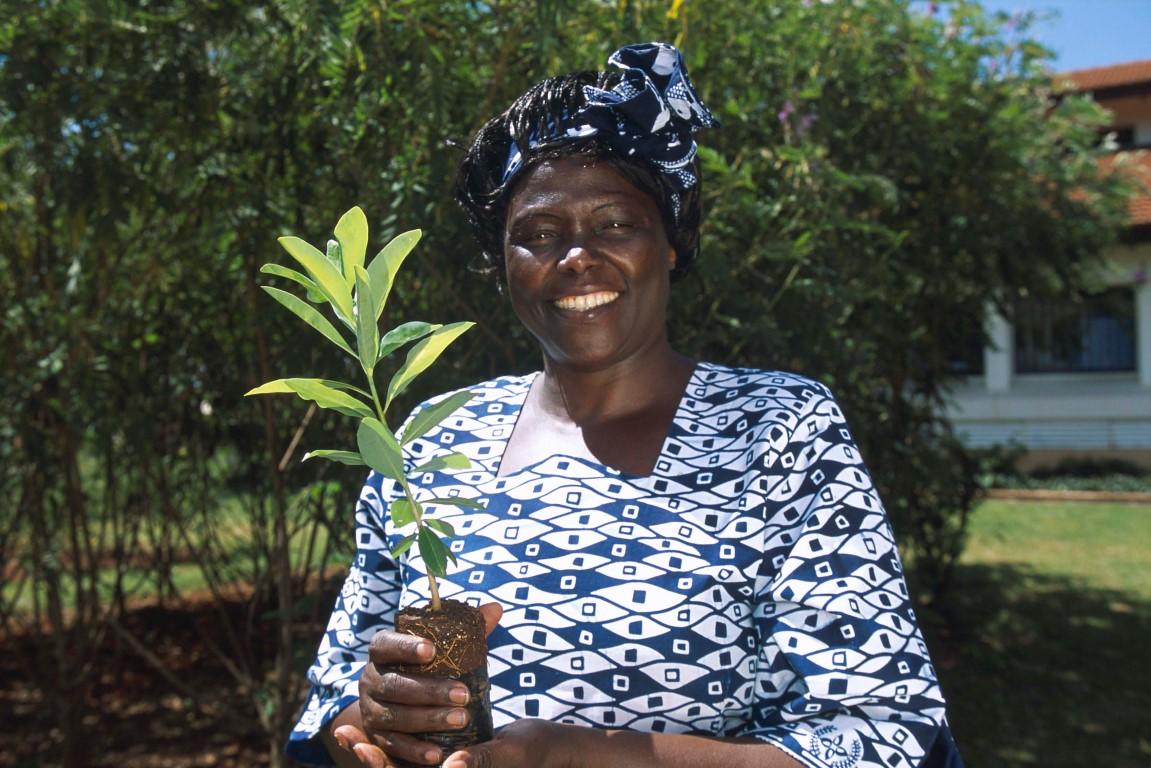Ecocentricity Blog: Filling a Gap
By: John A. Lanier

Ecocentricity Blog: Filling a Gap
There’s a moment that I think every person experiences at least once in their life. It is typically unpleasant, and if mismanaged can become quite embarrassing. At the same time, the moment is an opportunity for growth and learning. The moment I’m speaking of is when, in conversation with others, you learn about something for the first time that you absolutely should have already known, causing others to tilt their heads at you and say, “really, you didn’t know that?”
I had one of those moments recently, but I was lucky - I learned the should-have-known thing from a podcast on my drive home, so I didn’t have to feel embarrassed in front of anyone. Yet here I am writing about it in a public forum, so perhaps I’m a glutton for punishment.
The podcast was the latest episode of A Matter of Degrees titled “How Gender Equality Can Save the Planet.” About a year ago, I wrote about the podcast and how much I was enjoying it, and I haven’t missed an episode since. It’s co-hosted by Dr. Katharine Wilkinson and Dr. Leah Stokes, two incredibly brilliant climate thinkers and doers.
In this episode, Wilkinson and a guest host, Dr. Ayana Elizabeth Johnson (another brilliant climate thinker and doer), explore the data showing how underrepresented women are when climate decision-making takes place, and how that underrepresentation leads to less-desirable outcomes. They make a compelling case that gender equality in climate leadership helps us to go further and faster when it comes to solving the climate crisis. It’s a great listen.
During the episode, Wilkinson and Johnson share the story of one of the most important environmentalists of the past 50 years, and this is where I had my moment. I had never heard of Dr. Wangarĩ Maathai. Now to be clear, if you’ve never heard of her either, I’m not trying to shame you. For me personally though, I feel like knowing the stories of famous environmentalists is kind of my job. I’m often telling the story of Ray C. Anderson, himself a famous environmentalist - this is my wheelhouse, and I had a massive gap in my knowledge. I’m glad it is now filled, and I want to lift up Dr. Maathai and her incredible legacy.
As many of you may know, Dr. Maathai was a Kenyan scientist, environmentalist, and activist who in 1977 founded the Green Belt Movement, a grassroots organization that organizes women to plant trees and combat deforestation. According to their website, they have planted more than 51 million trees in Kenya, and they have become more than just a conservation organization. Through their work, they strengthen whole communities in Kenya by empowering women, and they help to promote sustainable livelihoods and democratic values.
Dr. Maathai passed away in 2011, but the work of her organization continues on. Before her passing though, Dr. Maathai received an incredible and well-deserved recognition, being awarded the 2004 Nobel Peace Prize. It was the first time an African woman had won the award, and though it was given primarily because of her contributions to democracy and peace, she spoke during her Nobel Lecture about the strong connection between environmental health and political governance. From her lecture: “[T]he state of any country’s environment is a reflection of the kind of governance in place, and without good governance there can be no peace. Many countries, which have poor governance systems, are also likely to have conflicts and poor laws protecting the environment.”
You can watch portions of her Nobel Lecture here, and you can read the full lecture here. I encourage you to do so, as her words continue to offer wisdom today. I’ll leave you with one more powerful quote from this incredible woman.
“[T]here can be no peace without equitable development; and there can be no development without sustainable management of the environment in a democratic and peaceful space.”This blog is available weekly via email subscription. Click here to subscribe.
Ecocentricity Blog: Stewards of the Land

